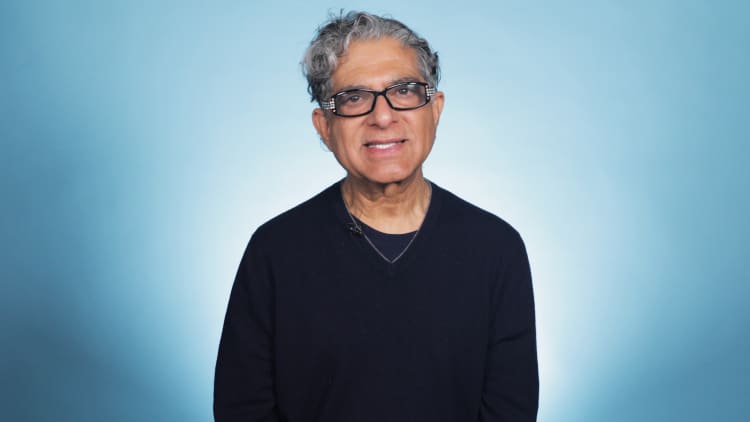An estimated 46.6 million U.S. adults struggle with mental illnesses, such as anxiety disorder, according to the National Institute of Mental Health.
But you don't have to be clinically diagnosed with a mental illness to experience the symptoms and effects of stress and anxiety, especially in the workplace. For millennials, specifically, research suggests that money and work are the biggest factors contributing to their stress.
Now, a recent survey from Mind Share Partners, a nonprofit that works with companies to improve mental health resources, examines the effects that mental health issues can have on employees.
For the survey, 1,500 people ages 16 and older who are employed at a company with at least 11 employees answered questions online about their mental health.
The survey questions included how often they experience mental health symptoms (for example, "sweating, rapid heartbeat, trembling, upset stomach, dizziness, or fainting"), how it impacts their work and whether they felt like they have adequate mental health support and resources in their workplace.
According to the findings, which are published in Harvard Business Review, 60% of people have experienced symptoms of mental health issues in the past year.
Further, half of millennial (defined in this survey as 23-38 years old) and 75% of Gen-Zer (18-22 years old) respondents have left a job, both voluntarily and involuntarily, partially due to mental health reasons. (To put that in perspective, only 20% of the total survey respondents reported doing the same.) For baby boomers (55-73 years old), the number was the lowest, with less than 10% leaving a job for mental health-related reasons.

Broadly speaking, younger generations seem to have more awareness about mental health than their older counterparts, Kelly Greenwood, CEO and founder of Mind Share Partners tells CNBC Make It. "Mental health is something they're used to talking about freely," she says. "All the sudden they get into the workplace and they're not supposed to talk about it."
Millennials were three times more likely to experience symptoms of anxiety than baby boomers, and Gen-Zers were four times more likely. Not surprisingly, millennials in the survey were also 63% more likely to know how to seek "company support," such as counseling or mental health training, than baby boomers.
This disparity is likely due to the "societal culture change," Greenwood says, and the fact that millennials and Gen-Zers tend to be more in tune with their mental health than baby boomers.
Beyond age, demographic factors like race affected the survey results. For example, black and Latinx respondents were 50% more likely to voluntarily leave a job, and had higher rates of mental health symptoms than Caucasian people.
"Underrepresented groups come across additional challenges in workplace by virtue of race or ethnicity," Greenwood says. "That certainly creates additional challenges on top of what it looks like to be in the majority in a company."
The type of industry where people worked also played a role: 55% of those who worked in tech said they had voluntarily left a job because of their mental health struggles. However, tech workers were also more likely to be open about talking about mental health with their colleagues.
Across the board, mental health has an effect on people's performance at work. In this survey, 61% said that their mental health impacts their productivity, and 37% said their workplace environment contributed to their feelings.
Greenwood says that, at the bare minimum, employers need to provide solid mental health benefits that employees feel comfortable using. Starting mental health employee resource groups can also help create a forum for like-minded people to identify each other in the workplace, she adds.
Managers and employees can also be trained to have difficult conversations and identify some general signs and symptoms of mental health issues, Greenwood adds. Talking openly about resources, such as therapy, also goes a long way, she says.
Correction: This story has been revised with Mind Share Partners correcting the study to reflect that millennials and Gen-Zers left jobs voluntarily and involuntarily.
Like this story? Subscribe to CNBC Make It on YouTube!



